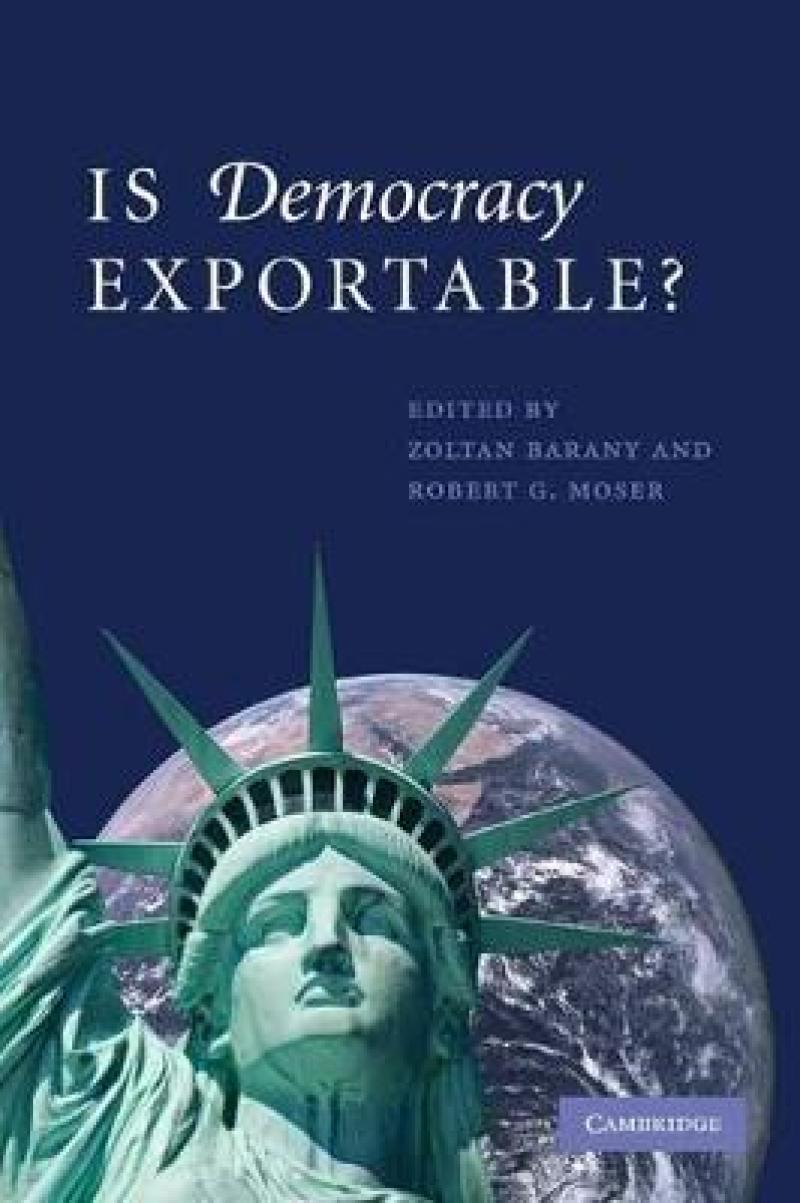“This collection of searching essays by a group of distinguished policy-oriented scholars artfully combines contributions that reach deeply into history, philosophy, and culture with others that hew to tough-minded empiricism and practicality. Sobriety and optimism are present in equal measure, leading to telling insights about a basic question of our time: can well-intentioned outside actors affect the democratic destiny of countries around the world?”
– Thomas Carothers, Carnegie Endowment for International Peace
“This book provides a long-overdue corrective to the neglect of the empirical underpinnings of an increasingly important dimension of foreign policy and international relations – efforts to export or promote democracy around the world. It is a creative and solid piece of scholarship that examines this issue from virtually all relevant perspectives.”
– Richard Gunther, The Ohio State University
